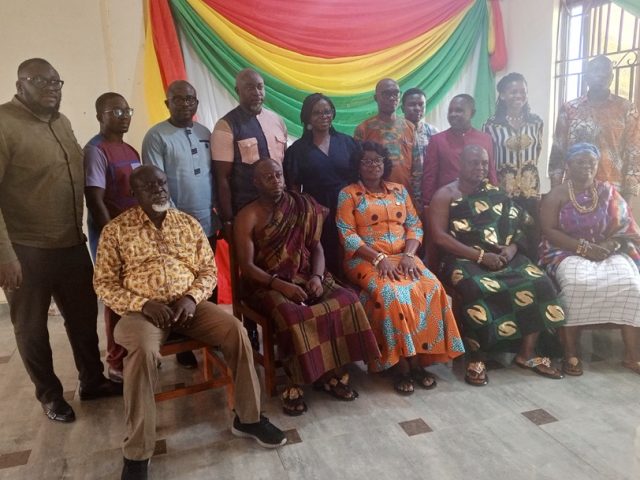As the world becomes more interconnected, Professor Kwame Osei Kwarteng has emphasized the need for educational reform in the nation, focusing on equipping students with 21st-century skills in problem-solving and innovation.
“We can’t continue with outdated methods,” Prof. Kwarteng stated at a stakeholders’ engagement in Sunyani.
“Our old objective-based curriculum is too examination-oriented, leading to unemployment among graduates.”
Prof. Kwarteng, who is the Board Chairman of the National Council for Curriculum and Assessment (NaCCA) and Provost of the College of Humanities and Social Sciences at the University of Cape Coast, announced that the new Senior High and Technical Schools (SHTS) curriculum aims to eliminate the “chew, pour, pass” mentality.
Instead, NaCCA is developing a comprehensive curriculum prioritizing problem-solving and innovation, and he called for input from all stakeholders.
He stressed that the evolving global landscape and the Fourth Industrial Revolution necessitate a curriculum that fosters innovation, creativity, and problem-solving to facilitate job creation and reduce graduate unemployment.
Bono Regional Minister Madam Justina Owusu Banahene urged regional stakeholders to actively engage in discussions about the new secondary and technical education curriculum.
Speaking at the event, held at Sunyani Senior High School (SUSEC) on Thursday, she highlighted the importance of collaboration in shaping the future of the nation’s education system.
“We are here as stakeholders in education to contribute ideas and suggestions for the new Secondary/Technical Education Curriculum, which will shape the future of our children,” she said.
Madam Justina Owusu Banahene noted that the new curriculum aims to modernize secondary education in response to technological advancements, global connectivity, and economic shifts.
She called on participants to fully engage in the discussions and provide valuable insights to ensure the curriculum equips students with the necessary skills for nation-building and socio-economic development.
She also emphasized the government’s significant investments in education, such as the free SHS policy, the Ghana National Digital Literacy Project, the Model Science Technology Engineering Art and Mathematics (STEAM) school program, and the Technical and Vocational Education Training (TVET) initiative.
The regional stakeholder engagement in Sunyani is part of NaCCA’s efforts to gather feedback and insights from various stakeholders to ensure the curriculum meets the evolving needs of students and the country. This session is expected to contribute to developing a curriculum that fosters creativity, employability, and sustainable development among the youth.

















